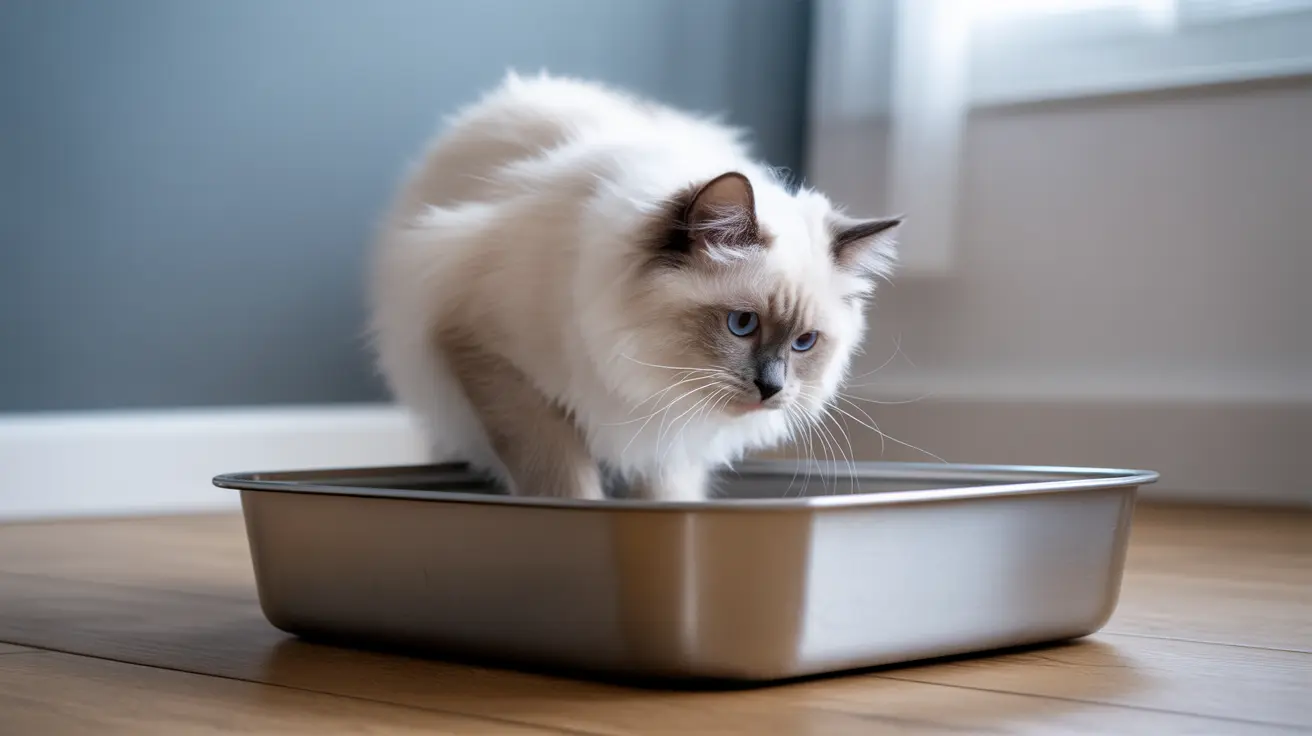Understanding your cat's urination habits is crucial for monitoring their health and well-being. While every cat is unique, there are general patterns and guidelines that can help you determine if your feline friend's bathroom routine is normal or cause for concern.
In this comprehensive guide, we'll explore typical cat urination frequency, factors that influence it, and how to spot potential health issues through changes in your cat's peeing habits.
Normal Cat Urination Frequency
Healthy adult cats typically urinate 2 to 4 times per day. This translates to about 18-28 milliliters of urine per kilogram of body weight daily. If you're using clumping litter, you should expect to see 2-3 "handful-sized" urine balls in the litter box each day.
However, these numbers can vary significantly based on several factors, and what's normal for one cat might be unusual for another. That's why it's essential to establish what's normal for your individual cat.
Factors Affecting Your Cat's Urination Patterns
Diet and Hydration
The type of food your cat eats plays a significant role in their urination frequency. Cats on wet food diets typically urinate more often due to the higher moisture content. Conversely, cats eating primarily dry food may urinate less frequently as their bodies work to conserve water.
Age and Health Status
Kittens generally urinate more frequently than adult cats, while senior cats might show changes in their urination patterns due to age-related health conditions. Medical conditions such as diabetes, kidney disease, or hyperthyroidism can significantly increase urination frequency.
Environmental Factors
Temperature, activity level, and stress can all impact how often your cat needs to urinate. Cats may urinate more frequently in warmer weather or when they're more active, and stress can lead to changes in urination patterns.
Warning Signs to Watch For
While variation in urination frequency is normal, certain signs should prompt immediate veterinary attention:
- Straining to urinate or crying in the litter box
- Blood in the urine
- Frequent trips to the litter box with little or no output
- Urinating outside the litter box
- Unusually large or small amounts of urine
Tips for Monitoring Your Cat's Urination
Maintaining awareness of your cat's urination habits can help you spot potential problems early:
- Use clumping litter for easier monitoring
- Clean the litter box daily and count urine clumps
- Note any changes in urine color or smell
- Track how often your cat visits the litter box
- Consider using multiple litter boxes to better monitor output
Frequently Asked Questions
How many times a day should a healthy adult cat pee?
A healthy adult cat typically urinates 2-4 times per day. This can vary based on individual factors, but this range is considered normal for most cats.
What factors can cause a cat to pee more or less frequently?
Diet type, water intake, age, health conditions, temperature, and stress levels can all affect urination frequency. Wet food diets and increased water consumption typically lead to more frequent urination.
How can I tell if my cat's urination pattern is normal or a sign of health problems?
Monitor the size and number of urine clumps in the litter box, and watch for signs like straining, blood in urine, or frequent unsuccessful attempts to urinate. Any sudden changes warrant veterinary attention.
What should I do if my cat is urinating small amounts frequently or straining to pee?
Seek immediate veterinary care, as this could indicate a urinary tract infection, blockage, or other serious conditions. This is especially urgent in male cats, who are prone to potentially fatal urinary blockages.
How does diet and hydration affect how often cats urinate?
Cats on wet food diets or those who drink more water will urinate more frequently. Dry food diets typically result in less frequent urination as the body conserves water. Proper hydration is crucial for preventing urinary tract issues.
Remember, any significant changes in your cat's urination patterns should be discussed with your veterinarian. Early detection and treatment of urinary issues can prevent more serious health complications and ensure your cat maintains optimal urinary health.






